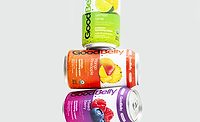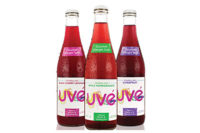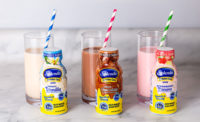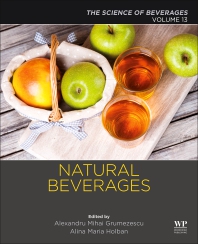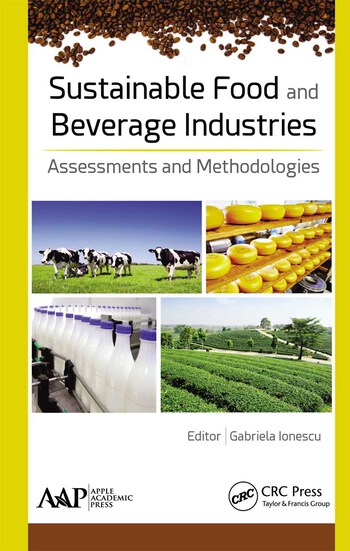R&D Feature
Weight management coincides with healthier lifestyle
Suppliers aiding weight management through innovations in sugar reduction, functionality

Image courtesy of Purecane
Noting that life’s struggles are a part of success, former bodybuilder, actor and California governor Arnold Schwarzenegger said, “Strength does not come from winning. Your struggles develop your strengths. When you go through hardships and decide not to surrender, that is strength.” For many consumers, losing weight is a constant struggle between food deprivation and yo-yo dieting, or “weight cycling.”
An estimated 45 million Americans go on a diet each year, and Americans spend $33 billion annually on weight loss products, according to Boston Medical Center. Yet, nearly two-thirds of Americans are overweight or obese, which can cause chronic health issues like heart disease, diabetes and hypertension.
David Nichols, category development and planning manager at Tate & Lyle, Hoffman Estates, Ill., notes that a balanced diet and lifestyle can promote risk reduction of chronic diseases such as Type 2 diabetes, heart disease and obesity.

Image courtesy of Designer Smoothie
“A healthy weight can promote healthy levels of cholesterol, blood pressure and blood sugar. A balanced diet is a critical component, for example, increasing whole grains, fruits and vegetables and other fiber sources, while also reducing added sugars, fats and sodium,” Nichols says.
Yet, experts note that weight loss and weight management isn’t about a “diet” or “program.”
Penny Woods, marketing director for Kemin Human Nutrition and Health, Des Moines, Iowa, affirms that particularly during the global pandemic, there’s been heightened awareness of weight management and overall health and wellness.
“We have seen this play out in a variety of ways during the global pandemic,” Woods says. “As people were restricted to their homes and had to adjust to the way they live, work and interact with others, it had an impact on behaviors and on overall health.”
Citing the FMCG Gurus’ Top Ten Trends for 2021 report, Woods highlights the consumer shift in adopting “a prevention over cure approach to wellness” and the connection between weight management and health and wellness in the following trends:
- Proactive Living — consumers are making changes in their day-to-day lives related to their diets and lifestyles to move toward their longer term goals.
- Rediscovering Health — consumers are placing more priority on health and nutrition in order to maximize their well-being.
- The Power of Plants — consumers around the world are looking for plant-based alternatives as they want to make a positive impact on their own health as well as the health of the planet through sustainability efforts.
A March 2021 report from FMCG Gurus notes that 52% of North American consumers are trying to lose weight, and 40% say they will engage in more physical activity due to COVID-19.
“On top of that, consumers are seeking out functional foods and beverages to recalibrate and proactively support their health,” says Christian Leighton, global marketing director for microbiome solutions at Chicago-based ADM. “They see mindful eating as vital to holistic well-being and are taking a balanced approach to making food choices, rather than merely counting calories.

Image courtesy of Purecane
“When surveyed in March 2021, 44% of global consumers reported seeking fortified and functional foods and beverages,” Leighton continues. “Supporting a healthful lifestyle through proactive measures, such as exercise and functional dietary solutions, is increasingly important for people concerned with wellness now and in the long-term.”
Ranjana Sundaresan, lead research analyst at Spoonshot, agrees that there’s a close association between health and weight management. “In our analysis of consumer conversations online on health, we found that weight loss is the leading health concern for people, accounting for 29% of such conversations,” she says.
The Minneapolis-based company analyzed references to weight management in business and consumer articles and found that interest in weight management remained steady between 2017 and early 2020. However, interest dropped by 36% between March 2020 and February 2021, coinciding with the spike in demand for comfort food during the pandemic. Since March 2021, interest in weight management has picked up again, growing by 25% in the past eight months, Sundaresan says.
Noting the plethora of beverage options to assist consumers, at 29%, juices and smoothies are the No. 1 category linked to weight loss claims, followed by tea (22%), carbonated soft drinks (CSDs) (18%) and coffee (12%), she says.
Clean-label trends
Beverage trends — gluten free, non-GMO, clean label, plant based, low- or no-sugar and organic — continue to resonate in the marketplace as consumers are looking for functional beverages that do more than just quench thirst.
Chicago-based SPINS LLC scrutinized the Top 25 functional ingredients in weight loss beverages across the natural enhanced and conventional channels for the 52 weeks ending Oct. 31, 2021, and found that there’s been a rise in functional foods along with a blurring of lines between ingredients in supplements and beverages.

Image courtesy of Caliwater
“This can most frequently be found in meal replacement drinks,” explains Haleigh Resetar, SPINS’ corporate communications specialist. “There are product attributes that are more important to consumers than others. In the ‘weight loss’ category, consumers are typically looking for beverages that promote the pursuit of wellness and a healthy lifestyle. Like with everything, there is no one size fits all for consumers looking to improve their health and wellness. Consumers are primarily interested in clean-label products that they can feel good about putting into their body — natural sweeteners are up by 6.7%.”
In line with this, in November 2021, Designer Wellness introduced Designer Smoothie, a shelf-stable, portable protein fruit smoothie that contains 12 grams of whey protein isolate and no added sugar.
Label-friendly sugar reduction also is impacting the market and has become a major focus for Minneapolis-based Cargill. The company offers several sweetener solutions, including its proprietary ViaTech stevia sweetener, which can precisely predict which combination of steviol glycosides deliver optimal taste and sweetness; and its newest option, EverSweet, which enables up to 100% sugar replacement without the bitterness or licorice aftertaste, that creates great-tasting products with even deeper calorie reductions, says Pam Stauffer, global marketing programs manager at Cargill.
Noting that consumers know and trust the natural, clean-label stevia, Stauffer explains that when developing EverSweet, Cargill scientists invested more than 300,000 hours studying the stevia leaf and discovered two rare glycosides in the plant ― Reb M and Reb D ― which offer heightened sweetness and a taste closer to real sugar.
“While these glycosides are rare in the stevia plant, we produce them through fermentation. The result is a cost-efficient, great-tasting sweetener, produced with the environment in mind,” Stauffer explains. “This dramatic step forward in sweetener technology enables up to 100% sugar replacement.”
Affirming that controlled, balanced and low blood glucose levels are key for effective weight management, Kyle Krause, product manager for functional fibers and carbohydrates for North America at Parsippany, N.J.-based BENEO, emphasizes the major influence that insulin has on blood sugar levels.
“Lower levels of this regulating hormone are beneficial for weight management as they allow for fat burning. High-glycemic ingredients are detrimental to weight management efforts as they can lead to the onset of type II diabetes and obesity,” Krause says. “BENEO’s chicory fibers and functional carbohydrates (Palatinose and ISOMALT) lower the blood glucose responses of food and drink products, a benefit that has been confirmed by the European Commission.”
Healthy beverage benefits
Aside from sugar reduction and controlling blood glucose levels, of which 49% of consumers are looking for blood sugar balance, Spoonshot’s Sundaresan notes that 16% of new product development launches in beverages carry a health benefit related to weight management. The ability to improve digestive health was No. 1 at 59%, with heart health (55%) and the ability to manage cravings (18%) in the Top 5.
“Among beverages with a health benefit related to weight loss, the top claim is interestingly gluten free, with 59% of such products calling this out.” Sundaresan says. Other top label claims are sugar free at 41%; natural at 35% and clocking in at 25%, respectively, dairy free, soy free and peanut free.
“Among beverages with a health benefit related to weight loss, the top claim is interestingly gluten free, with 59% of such products calling this out.”
-- Ranjana Sundaresan, lead research analyst at Spoonshot
Designed to offer optimal hydration and immunity, Purecane No Calorie Electrolyte Immune System Support is formulated with Sugarcane Reb M and features zero calories, zero sugar and zero net carbohydrates. Available in Orange Super Fruit, the electrolyte drink mix contains five essential vitamins and key electrolytes, the company says.
To foster the strong connection between maintaining a healthy weight and overall wellness, consumers are seeking lower sugar options and switching to plant-based proteins to achieve satiety.
SPINS’ Resetar notes: “Pea protein is up 1,648.6%. Functions such as stress relief are also changing the ingredients in health-focused beverages.”
Chicago-based Glanbia Nutritionals offers several protein-based ingredients including KetoSure MCT, a bioavailable and efficacious coconut-based MCT-C8 optimized with whey protein to support a ketogenic diet; Prolibra, a whey protein derived ingredient that increases fat loss and helps maintain lean muscle; and CapsiAtra, a synthetic dihydrocapsiate similar to capsaicin.
“CapsiAtra has been shown to support weight management and endurance without the negative side effects of pungency, elevated heart rate and elevated blood pressure,” explains Max Maxwell, manager of market intelligence at Glanbia. “Lastly, we offer SatieTein, a milk protein concentrate, which contains casein molecules that are cross-linked to form a larger protein size. The large protein size slows down enzymatic digestion and helps promote increased satiety and reduced desire to eat.”
Similarly, Tate & Lyle offers PROMITOR soluble corn fiber, which might assist with weight management by providing minimal calories as well as supporting health benefits such as laxation, low glycemic response, cholesterol management and bone health, it says.
Tate & Lyle’s Principal Scientist for Global Nutrition Melissa Kaczmarczyk points out that scientific research also supports the prebiotic benefits for PROMITOR, which also provides “superior digestive tolerance over insulin,” she says. “In addition to fibers, Tate & Lyle has one of the broadest portfolios of sweetening solutions to assist formulators in reducing calories and added sugars, in turn promoting consumer health and wellness goals.”
Strategies for success
Small changes in the way beverages are consumed and mixed can make a significant difference in how many calories are ingested, says Nathan Pratt, nutrition scientist at Kerry Taste & Nutrition, Beloit, Wis.
Beer, wine and mixed drinks can be anywhere from 100 to 400 calories, and those calories can quickly add up. Among the tactics Pratt suggests are consuming ready-to-drink (RTD) mocktails, “zero alcohol” beer or low-alcohol hard seltzers. Other tips include drinking flavored zero-calorie waters instead of calorie-rich drinks, using low-calorie or diet sodas as mixers, drinking protein waters and trying flavorful sipping broths that also contain protein.
“One interesting trend is developing vegetable, bone or meat sourced sipping broths in a wide range of emerging new flavors,” he says. “These sipping broths could have added plant protein fortification or can provide immune support through the inclusion of Kerry’s Wellmune, a proprietary yeast beta glucan with clinical research that demonstrates its efficacy.”
With 2022 upon us, the rise in better-for-you beverages will not only appeal to consumers wanting shrinking waistlines, but will continue their upward trajectory.
Glanbia’s Maxwell suggests that RTD and ready-to-mix personalized beverages will become more available, affordable and taste better, while Spoonshot’s Sundaresan expects to see more probiotics and prebiotics added to beverages to improve gut health and aid weight loss success. Sugar reduction and plant/dairy hybrid products will remain hot topics. It’ll be interesting to keep tabs on what the new year brings in terms of innovation and trends.
Looking for a reprint of this article?
From high-res PDFs to custom plaques, order your copy today!




